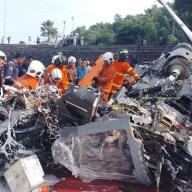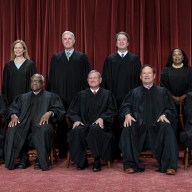On a day that is supposed to be about forgiveness and reaching out to all Canadians, the latest dispute between First Nations and the government took centre stage during the National Day of Reconciliation.
The event was organized by the Assembly of First Nations to mark the first anniversary of Prime Minister Stephen Harper’s apology to residential school survivors and their families.
Speaking at one of his last major events as national chief, Phil Fontaine told a large crowd gathered on Parliament Hill it was time to join with all Canadians to create a better place for First Nations people.
“We’ve had too much pain and suffering in our lives. We want something better,” he said. “Sadly, there are too many of our communities that are not safe and they are not healthy.”
However, Fontaine said, he could not apologize for the anger and frustration that overwhelms so many First Nations people.
That anger was best articulated by Akwesasne Grand Chief Tim Thompson who is one of the leaders in the standoff that forced the border crossing near Cornwall to be closed.
On June 1, Akwesasne Mohawks set up a blockade on the bridge in opposition to the government’s plan to arm border security agents.
The checkpoint sits on Akwesasne territory, and Thompson said they do not want the customs officers to be armed.
“To put a gun in their hand and provide those officers with only three weeks of training is ludicrous,” he said. “We have seen our community pushed to the limit with harassment … enough is enough, Canada.”
With Indian Affairs and Northern Development Minister Chuck Strahl sitting among national chiefs, Thompson called Public Safety Minister Peter Van Loan a “liar” for claiming that the Mohawks had been consulted.
Strahl, who spoke to the crowd prior to Thompson, said he understands this is a very emotional time for Akwesasne. Strahl said the best thing until things cool down is to ensure that there is no chance for confrontation, which is why the border is closed.
















